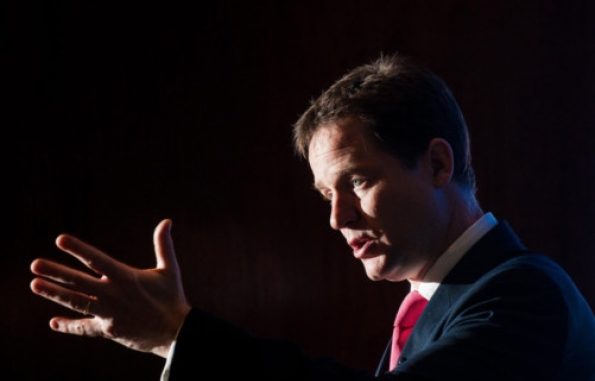
 Deputy Prime Minister, Nick Clegg has yesterday denied that Britain is planning to ‘pull up the drawbridge’ at the border to prevent foreign workers’ influx from crisis-hit eurozone nations.
Deputy Prime Minister, Nick Clegg has yesterday denied that Britain is planning to ‘pull up the drawbridge’ at the border to prevent foreign workers’ influx from crisis-hit eurozone nations.
Mr. Clegg’s intervention came after the Home secretary, Theresa May had previously disclosed contingency planning was under way to deal with a potential influx of would-be immigrants. She has also told that currently there has been no evidence of increased migration, but it becomes “difficult to say how it is going to develop in coming weeks”.
Fears are rising that millions of Greeks could be forced to migrate and search for work abroad if a financial collapse engulfs the country. The crisis could also hit the other weak member states such as Spain, Ireland and Portugal, which also dependent upon the single currency. Migration controls within the European Union are allowed only in “exceptional” situations.
However, Mr. Deputy PM has outrightly dismissed the idea that Britain might need to stop a rush of migrants taking advantage of free travel throughout the European Union.
Mr. Clegg has stated: “I really do think some of the breathless talk in the media about do we pull up the drawbridge to stop hoards of people migrating across Europe is both far-fetched, somewhat apocalyptic in tone and deeply unhelpful. We’re not there yet. What I hope will happen is that Greek people will choose to stay in the eurozone, notwithstanding the sacrifices that involves, and there will be this new agreement to come up with a comprehensive solution to the eurozone.”
Despite efforts to lower the fears about Greek immigration, Mr. Clegg did warn of an “unravelling effect” if the country is allowed to leave the euro.
He has stated: “It was considered to be an irrevocable step – it couldn’t be reversed. Once you’d created this currency, it was there to stay. I think once that is proven not to be the case, if any individual country were to leave, the unravelling effect of that is almost impossible to predict.”
He has courageously asked the European politicians to put aside their differences and make a “grand bargain” to save the single currency. European leaders are still working on plans to stop Greece crashing out of the single currency, but the country’s future largely depends on whether it manages to choose a stable government at coming month’s elections.
Last night, the short-lived Greek prime minister, Lucas Papademos, who left office this month, had warned that its’ public finances could collapse earlier by next month, leaving salaries and pensions unpaid.
The extremity of the situation was revealed by a Greek newspaper, which obtained a note from Mr. Papademos to the country’s president, Karolos Papoulias.
The document mentions: “The state will face considerable difficulty covering its expenses in June.”
Prime Minister, David Cameron has also revealed his regarding the future of the euro last week when he warned the eurozone that it “either has to make up or it is looking at a potential break-up”.
Article viewed on Oye! Times at www.oyetimes.com.

Be the first to comment